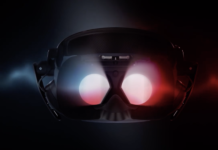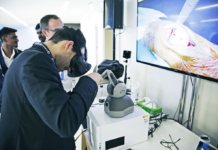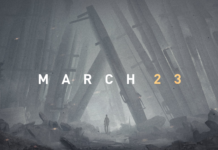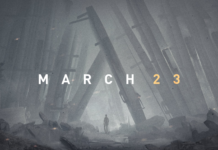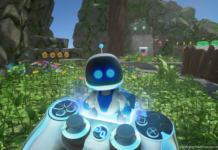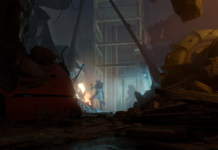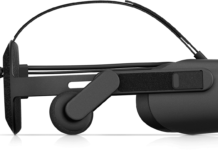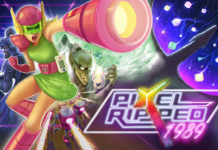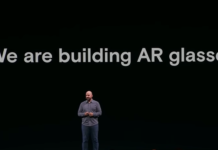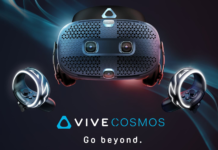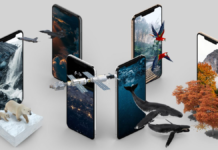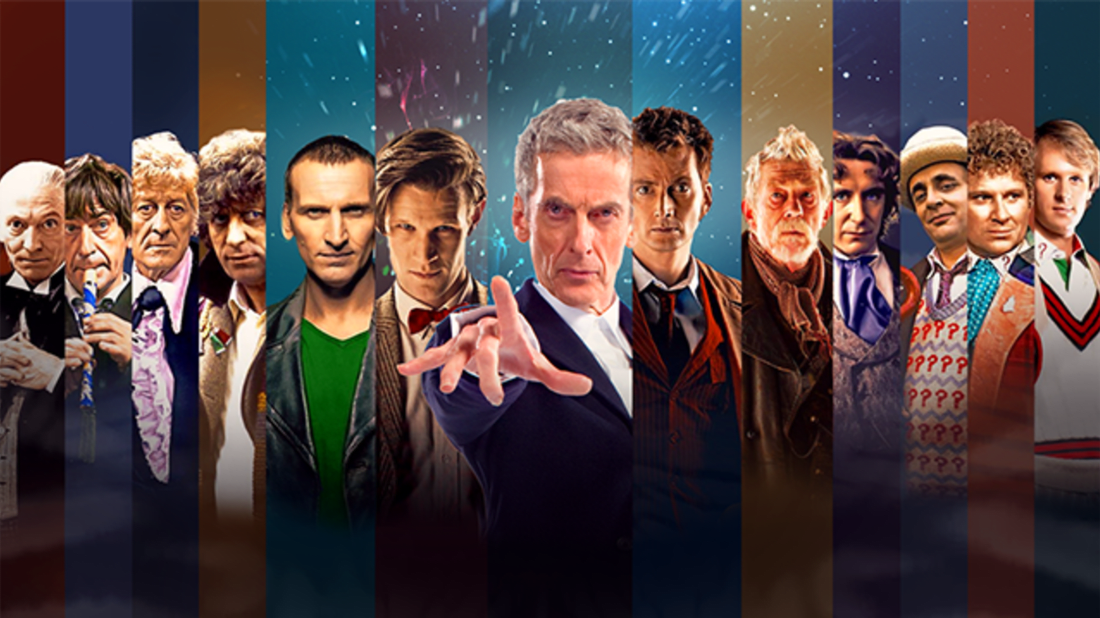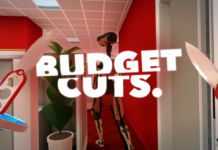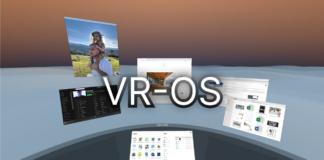This morning, the Rift Platforms accepted a new game onto the platform, a game many people have been patiently waiting for. Dr. Who is a game that many fans have been waiting for, especially for the ability to step into and pilot the TARDIS for the first time in their lives. The voice crew in this game is impressive as well, but the game as a whole didn’t live up to the hype that many have been holding the game to.
We don’t think this game is worth full price of $24.99, but we do think it is worth the try and download on the Viveport Infinity subscription. The Viveport store has this game for free, as Oculus doesn’t. You will still be able to play this game with the Rift and Rift S, even if you aren’t going through the Oculus pay portals.
The Oculus Writing Staff put together a fantastic written interview with the Maze Theory Creative Director, Marcus Moresby. In this interview, they cover a wide variety of topics, and all of them are insightful to how this game was made. For your viewing convenience, we have induced the entire interview below.
Full Oculus Interview
How did you approach the early development process for Doctor Who: The Edge of Time?
Marcus Moresby: It’s definitely an interesting process, writing for VR and immersive media, particularly when we’ve been collaborating so closely with the BBC.
First things first, I took some time at home to watch around 70 episodes of the show, which is clearly a perk of my role—looking at it through different lenses of storytelling, the wide range of environments, monsters, and making notes of any mechanics that would be a great fit for VR.

Then I spent a lot of time on Reddit and Doctor Who fan boards. There’s a load of stuff out there already about what the fans want most from a Doctor Who game. We’ve tried our best to look at what might make you feel a part of the show.
I then sat down and wrote a basic version of the story, coming at this from my passion for immersive theatre and gaming. Once we had a basic version, we then collaborated back and forth with one of the previous show’s writers, Gavin Collinson, to make sure the story was truly authentic.
Given that this is a three-hour experience, what steps did you take to ensure maximum replayability?
MM: It’s probably important to say that, at Maze Theory, we do have a particular style of VR experience we’re looking to create. We see VR as a new entertainment medium that combines cinematic film and TV, immersive theatre, and gaming. As such, our games aren’t 10- to 20-hour long battles and don’t use repetitive gameplay mechanics that keep getting harder. We are a storytelling studio. Our games are dramatic, narrative-based adventures that include various gameplay mechanics, puzzles, escape room techniques, stealth, and some basic shooter mechanics. Inevitably, that means our experiences are probably more like being inside an epic film, trilogy, or TV season.

That said, there are definitely some deeper layers to the story that fans will want to go back and explore—aspects of the narrative they’ll want to repeat and dig into further.
What’s the most intense reaction you’ve seen while demoing or playtesting the game?
MM: Ha, probably players’ initial reactions to the Weeping Angels. They’re naturally terrifying in VR, and we’ve had our fair share of squealing in the studio.
In the TV show, they move when either you blink or the lights go out. We’ve had to adapt that slightly for VR, so you have to keep watching them to ensure they don’t get you. But if they fall outside your field of view, they’ll come for you!
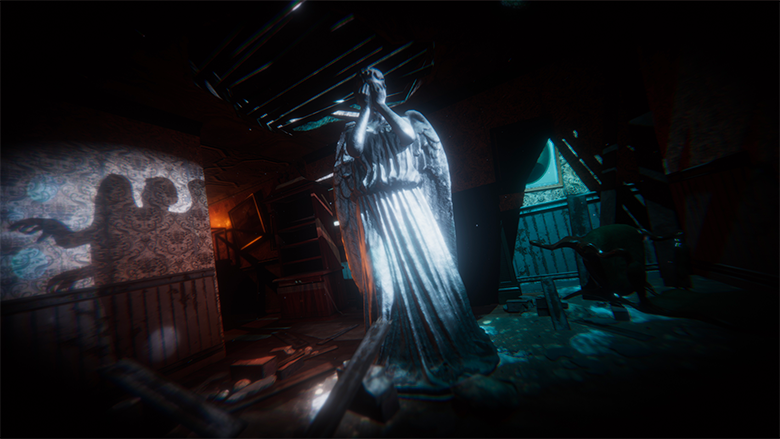
The gameplay for that level is a bit like a game of chicken. We’ve given players a machine to fix that falls slightly outside of their view of the angels, which gives the player the dilemma of how to balance actions while maintaining your eye on them.
Do you need to be a fan of the show to enjoy the experience?
MM: It’s actually really important to us that this title isn’t just for Doctor Who fans. We’ve designed it specifically to have a much more mass appeal. Anyone into narrative adventure games and sci-fi with a touch of horror will love the game, even if they’ve never seen the show before.
That was really important for the BBC, too, as they hope this will expand the show’s appeal.
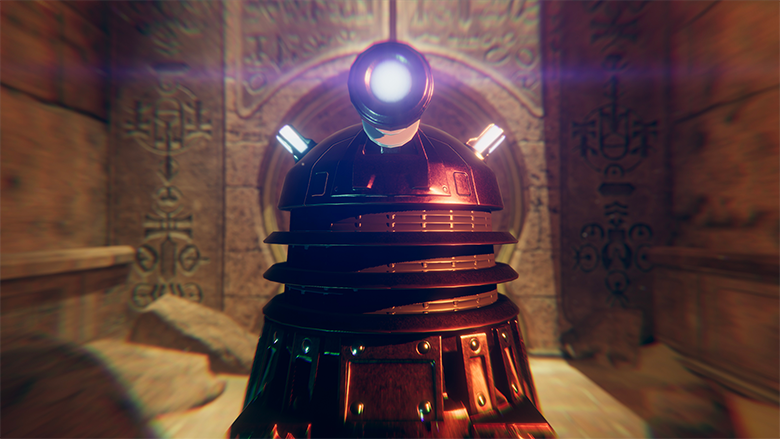
Sure, there are hidden gems and references for fans of the show, but equally if you’ve never even heard of Doctor Who, we hope this is something people can pick up and enjoy without the need for any complicated backstories or understanding of the show’s history. At its core, this is an epic narrative adventure. Going back in time to Victorian London or forward to distant planets, there’s a variety of different gameplay that should appeal to most people.
Are you a Doctor Who fan yourself? If so, who’s your favorite incarnation of the Doctor?
MM: I grew up with the show in the ’80s, so Colin Baker and Sylvester McCoy were my childhood doctors. Like most young viewers, I’d cower in terror behind the sofa at the sight of each week’s monsters. The idea of reincarnating the Doctor has always appealed to me, but choosing a favorite is always tricky. Obviously I’m going to say Jodie Whittaker is a favorite, having worked on part of the universe of Who, but also because she continues much of the quickness of Matt Smith’s take, which I adored. His Doctor had such a strong supporting cast and will always have a place in my heart.

If people take one thing away from Doctor Who: The Edge of Time, what do you hope it would be and why?
MM: I want them to feel like they’ve had an incredible adventure, like they’ve been inside an episode of the show and through active participation have shaped the drama. I want players to think about VR as the most authentic, most premium experience of narrative entertainment.
What’s next on the horizon for Maze Theory?
MM: We’re thrilled to be working on Peaky Blinders and have just commenced production. It focuses heavily on human interaction and how you can make a character feel alive inside a virtual world. Everyone’s very excited about the idea of traveling back to the 1930s and the narrative adventure you get with a gangster title like that.
We’re also working on a couple of our own concepts internally. It’s important for us that we aren’t just known for big IP projects, and we imagine our third title will be something unexpected which learns from our previous R&D.





